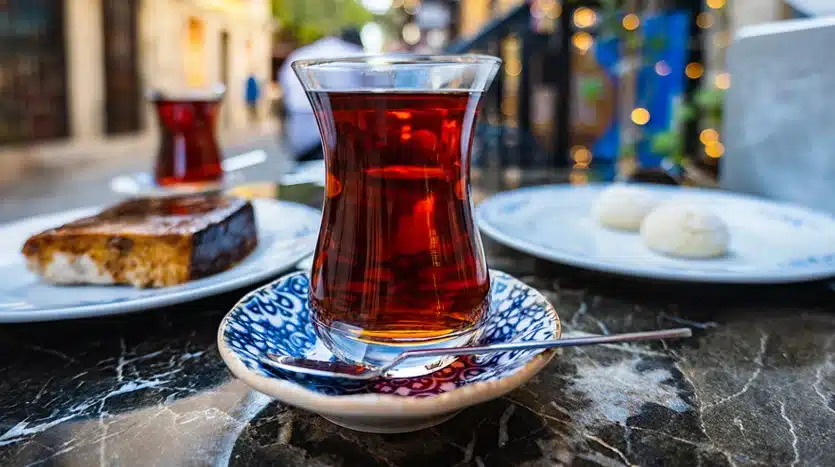Discovering the Charm of Turkish Çay: A Cultural Staple
Turkish çay (tea) is more than just a beverage; it’s a vital part of the country’s social fabric and daily life. While coffee might seem like the national drink, it’s actually çay that holds a special place in the hearts of the Turkish people. Here’s a creatively reimagined guide to some fascinating aspects of Turkish çay that you might not have known:
- Çay: The Heart of Turkish Hospitality: Pronounced “chai,” this black tea is traditionally served in tulip-shaped glasses, a design hailing from Ottoman times. Unlike the British, Turks usually enjoy their çay without milk or lemon, often sweetened with sugar cubes.
- A Shift from Coffee to Tea: Turkish tea gained popularity post-WW1 when coffee became expensive. Mustafa Kemal Atatürk encouraged the shift to tea, which has since become the nation’s favorite drink.
- From Chinese Imports to Turkish Fields: Initially imported from China (where tea is called ‘cha’), Turkey now cultivates its own tea, particularly in the Rize region, and is among the world’s top tea producers.
- A Nation of Tea Lovers: Turks consume an impressive 3 kilos of tea per person annually, making them the world’s top tea drinkers.
- Rize: The Tea Capital: The northeastern region of Rize, with its ideal climate and soil, is the heartland of Turkish tea production, where the leaves are processed for nationwide consumption.
- Tea as a Shopping Companion: Don’t be surprised if a shopkeeper offers you a glass of çay while you browse – it’s a gesture of hospitality and welcome.
- Tea Houses and Gardens: “Çay Eviler” (tea houses) and “Çay Bahcesi” (tea gardens) are common in Turkey, serving as social hubs. While tea gardens welcome families and friends, tea houses are often male-dominated spaces for socializing and games.
- Refusing Tea: A Cultural Faux Pas: In Turkey, declining an offer of çay can be seen as impolite. If you must refuse, it’s better to ask for water instead.
- Customizing Your Çay: For those who find traditional Turkish çay too strong, flavor granules like apple, lemon, or orange can be added to soften the taste.
- Pairing Çay with a Narghile: Sometimes, çay is enjoyed alongside a narghile (water pipe), adding to the social experience.
- Health Benefits: Drinking black çay can have health benefits, including heart health and cholesterol management. It’s also a relaxing ritual that can improve mental well-being.
Understanding these aspects of Turkish çay culture can enrich your experience in Turkey, whether you’re sipping çay in a bustling bazaar or enjoying a quiet moment in a scenic tea garden.
Our Score
Click to rate this post!
[Total: 0 Average: 0]

